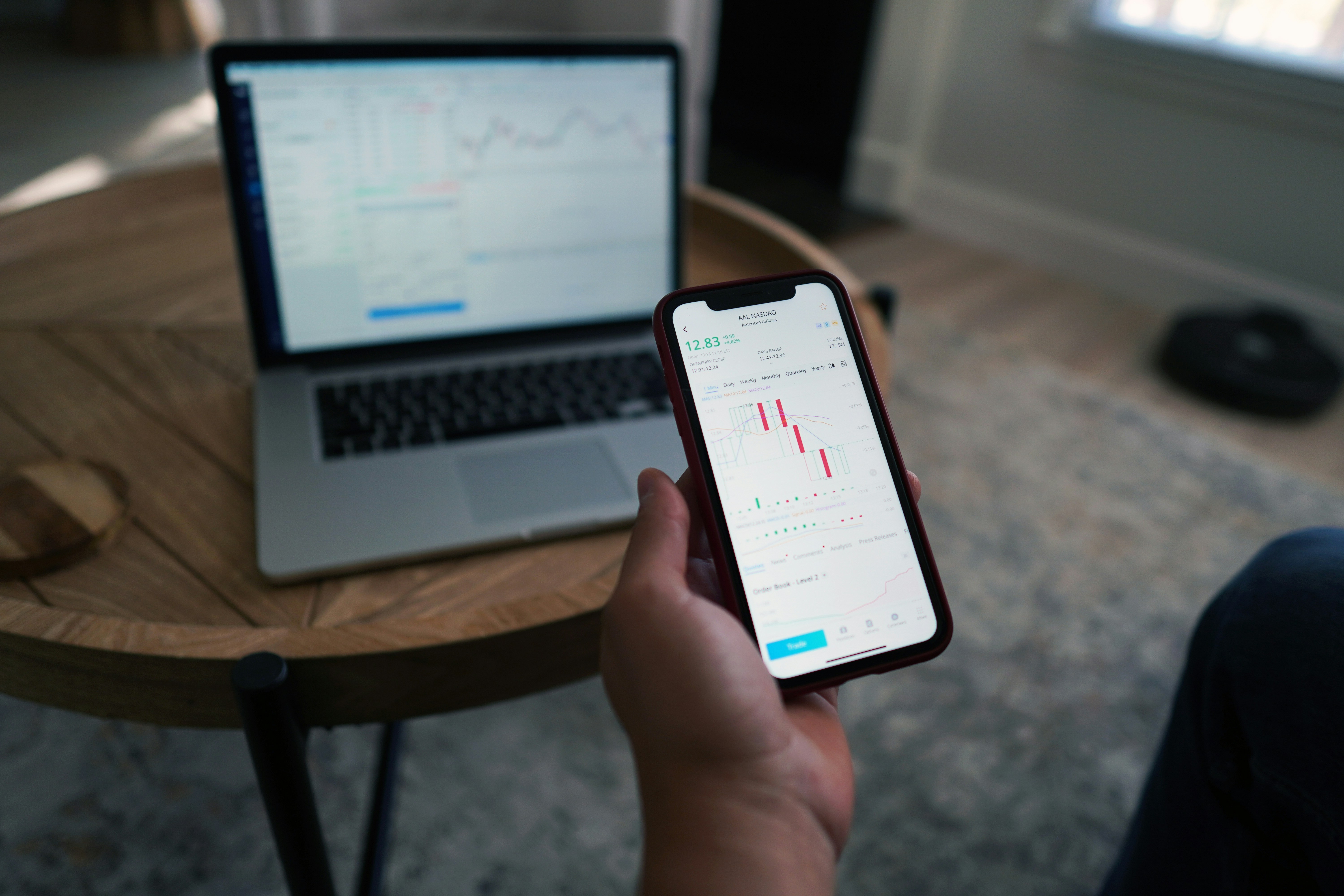Understanding the Basics of Trading
Trading involves the buying and selling of financial instruments, and to engage effectively in this practice, it is essential to understand the fundamental concepts that underpin it. Financial markets serve as platforms where traders can transact various assets, including stocks, foreign exchange (forex), commodities, and more. Each market operates with its distinct mechanics and characteristics, enabling diverse trading strategies tailored to different goals and risk tolerances.
Among the primary types of financial markets, the stock market allows investors to buy shares in publicly traded companies. Forex trading, on the other hand, involves the exchanging of currencies and operates 24 hours a day, providing traders with continuous opportunities. Commodity trading encompasses a broad spectrum of physical goods, such as gold, oil, and agricultural products, which can experience considerable price fluctuations due to global supply and demand dynamics.
Equally as important as understanding the types of markets are the various trading styles available to traders. Day trading involves making multiple trades within a single day, seeking to capitalize on short-term market movements. Swing trading is another approach, focusing on capturing trends over several days or weeks, while position trading typically entails holding positions for more extended periods, driven by fundamental analysis.
To navigate these markets successfully, an understanding of trading terminologies and mechanics is crucial. Familiarity with terms such as bid, ask, leverage, and margin is essential for effective communication and decision-making. Additionally, traders rely on various tools, including trading platforms and charting software, to analyze market trends and execute trades efficiently. Charting software is particularly valuable, as it enables traders to visualize price movements and identify trends or patterns that influence buying and selling decisions.
Several key factors influence market trends and prices, such as economic indicators, geopolitical events, and market sentiment. Understanding these elements enhances a trader’s ability to anticipate market movements and make informed decisions. By building a solid foundation of trading skills and knowledge, aspiring traders can enhance their potential for long-term success in this dynamic field.
Developing a Trading Strategy
Creating an effective trading strategy is essential for any individual aiming to become a professional trader. A well-structured trading plan serves as the foundation for successful trading and is tailored to an individual’s unique goals, risk tolerance, and market conditions. The initial step in developing this strategy involves performing thorough market analysis, which can be divided into two primary types: fundamental and technical analysis. Fundamental analysis focuses on economic indicators, company performance, and industry trends to evaluate the intrinsic value of an asset. In contrast, technical analysis utilizes historical price data and chart patterns to predict future market movements.
Once a comprehensive market analysis is in place, the next element of a trading strategy involves effective risk management practices. Successful traders understand the importance of protecting their capital through calculated risk-taking. This includes defining the maximum allowable loss per trade, which can be achieved by setting stop-loss orders. Additionally, determining the appropriate position size based on account balance and risk tolerance is crucial to ensure long-term sustainability in trading.
Moreover, establishing clear entry and exit strategies within a trading plan is pivotal. Entry points should be based on specific technical indicators or signals that indicate a favorable trade opportunity. Similarly, defining exit points is necessary to secure profits or minimize losses, ensuring that emotions do not dictate trading decisions. Backtesting trading strategies against historical market data serves as an integral component, allowing traders to assess the viability of their approach over various market conditions.
Lastly, maintaining a trading journal is highly recommended for reflecting on past trades, learning from mistakes, and tracking overall performance. By systematically documenting trades, traders can identify patterns and trends that inform future decisions. A structured approach to trading not only enhances consistency and accountability but also fosters continuous improvement, ultimately leading to success in the professional trading arena.
Maintaining Discipline and Managing Emotions
Successful trading is as much about psychological strength as it is about market knowledge and strategy. The ability to maintain discipline and manage emotions is critical in navigating the unpredictable nature of financial markets. Traders often experience emotional highs and lows, especially when decisions lead to unexpected outcomes. Recognizing these emotional fluctuations is the first step towards effective management of one’s reactions during trading.
Self-discipline plays a pivotal role in a trader’s journey. It ensures adherence to predetermined trading plans, which can help mitigate impulsive decisions caused by fear or greed. Establishing a clear, well-defined trading plan enables traders to outline their objectives, risk tolerance, and strategies, setting a foundation for disciplined trading practices. By sticking to this plan regardless of market volatility, traders can reduce emotional stress, as they have a roadmap to follow during turbulent times.
Moreover, cultivating a long-term focus is essential. Many traders are caught up in the excitement of short-term gains, leading to erratic behavior and emotional distress when trades do not yield immediate profits. Maintaining a long-term perspective helps traders keep their emotions in check, encouraging patience and resilience. Viewing trading as a marathon rather than a sprint fosters a mindset focused on sustainable growth rather than fleeting victories.
To further strengthen emotional control, implementing stress management techniques is beneficial. Mindfulness practices, such as meditation and deep-breathing exercises, can enhance emotional awareness and stability. Additionally, identifying potential triggers that cause emotional surges can equip traders to respond more rationally, minimizing the impact of emotional decisions on trading outcomes. By developing a resilient mindset, aspiring traders can navigate the complexities of trading while maintaining discipline and composure in their decision-making processes.
Continuously Educating Yourself and Adapting
In the ever-evolving landscape of financial markets, the pursuit of knowledge is imperative for aspiring professional traders. Continuous education allows traders to stay informed about market changes, new trading technologies, and emerging strategies. Knowledge acquisition can significantly enhance a trader’s ability to make informed decisions and effectively manage risk. Engaging with various resources is crucial in this journey of learning.
Books written by reputable authors in trading can be invaluable. Titles focusing on market psychology, technical analysis, and trading strategies provide foundational knowledge essential for any trader. Renowned books such as “Market Wizards” by Jack D. Schwager and “Technical Analysis of the Financial Markets” by John J. Murphy offer insights that remain relevant in this fast-paced field. Furthermore, investing in online courses can facilitate structured learning, catering to varying expertise levels from beginners to seasoned traders. Platforms such as Coursera, Udemy, and specialized trading institutes offer comprehensive courses focused on diverse trading areas.
Additionally, attending webinars led by experienced traders and professionals can be an excellent way to gain insights into current market trends and strategies. These interactive sessions often allow participants to ask questions, providing a more in-depth understanding of complex topics. Another beneficial practice is networking with fellow traders. Engaging in trading communities and forums offers opportunities for sharing experiences, strategies, and receiving constructive feedback, thus enriching one’s trading perspective.
Adapting trading strategies based on changing market conditions is equally important. Market environments can shift unexpectedly due to economic news, geopolitical events, and various technical factors. Therefore, being flexible and open to refining one’s approach helps in maintaining reliability and effectiveness in trading practices. Adopting a growth mindset fosters resilience and the ability to navigate the complexities of trading through continuous learning.






Leave a Reply